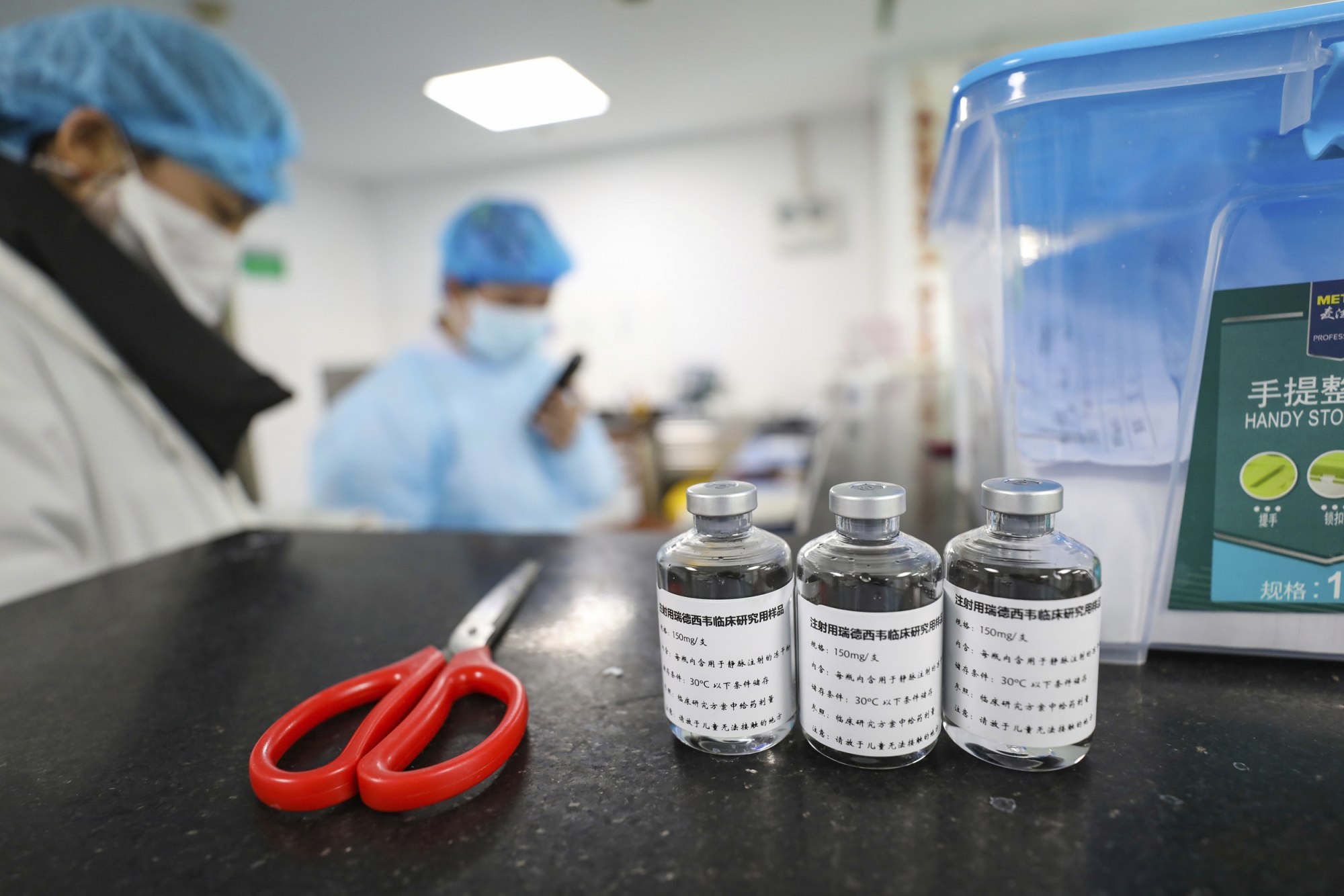Bottles of Remdesivir in Wuhan, China. NBC News.
New research is showing that the experimental Remdesivir drug may be helpful in treating severe cases of Coronavirus. NBC News. A small study published by the New England Journal of Medicine showed positive results for many of the 53 people who were given the drug on the "compassionate use" program. 68% of patients were able to have reduced oxygen thanks to the drug and 17 out of the 30 patients on ventilators were able to be taken off them with the drug. That is especially important as the survival rate on ventilators is not good. The study comes with the standard caveats in that it was small, has not been replicated and isn't the same as a clinical trial. Mild to moderate liver problems may have been a side effect of the drug, or it might have been caused by the virus itself. The drug was developed by Gilead as a potential treatment for Ebola, which it did not work for.
My Comment:
Compare the tone of this article with the hysterical screeching you get whenever Hydroxychloroquine shows up. The NBC article is a lot more positive and supportive of Remdesivir than basically any mainstream media sources have been on Hydroxychloroquine since President Trump mentioned it as a possible treatment.
Regardless, I have heard that Remdesivir has been having a decent effect on Coronavirus for awhile now. Indeed, I think that President Trump mentioned it in one of his briefings as well, but everyone decided to focus on Chloroquine and Hydroxychloroquine instead.
I think the two drugs work in different ways. The Chloroquine drugs seem to work better as a prophylactic, preventing new infections and making sure early cases stay mild. They haven't been the miracle drug mostly due to the fact that severe cases are already too far along for the drugs to help. Once the disease has progressed to the point where oxygen is needed it's probably too late for Chloroquine.
Remdesivir seems to be more useful for those patients as this study shows. For severe patients already on oxygen it seems to help a great deal more than the Chloroquine drugs do. This is good news as it means that some of those people can get off of oxygen or ventilators and many more people will survive.
The downside is that Remdesivir is still an experimental drug. It was developed for Ebola and hasn't had major clinical trials to determine what side effects it may have. Unlike the Quinine based drugs, which have well known side effects that can be easily accounted for, we don't know if Remdesivir could cause major problems. The liver problems could be an example of this and it's something we should watch.
Cost is another potential issue. Though Remdesivir isn't that expensive to make, it's still on patent for Gilead. I haven't been able to determine how expensive it is to produce or how much Gilead is charging for it, but I have to assume it will be more expensive than the quinine derived drugs, which have been off patent for years.
Another concern is supply. This drug isn't that common and though production is ramped up, I don't think we will have anywhere near enough to actually give this drug to everyone who might potentially need it. I've seen some reports of Gilead restricting supply of the drug due to reserving it for clinical trials, so it's very possible that there isn't enough to go around.
Still, I think the drug has a lot of potential to save lives. If we can get the production problems solved and there aren't any major side effects we should be able to save a lot of lives with the drug. However, it should be noted that Remdesivir seemed promising in treating Ebola back in the day as well, but after more clinical trials it was shown to be not effective. Let's hope that isn't the case here.

No comments:
Post a Comment